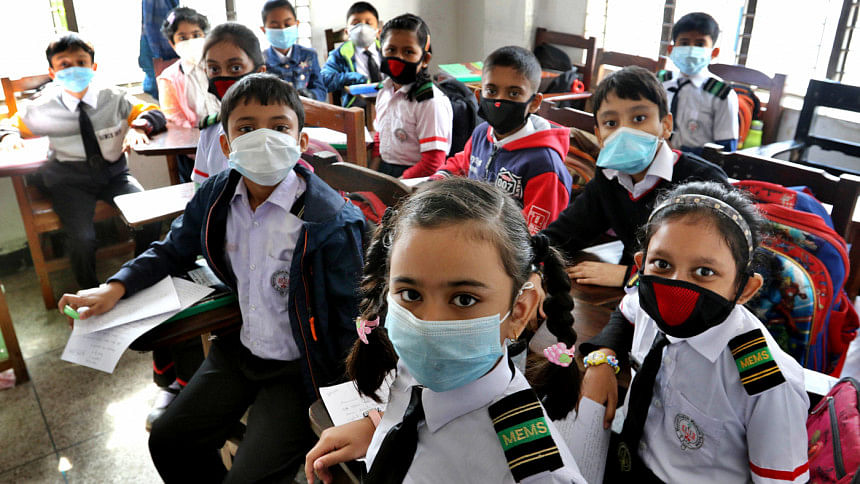How schools can prepare for coronavirus

With three confirmed cases of coronavirus in Bangladesh as of now, the country is on high alert regarding preventive practices. While it is still unclear how it will influence our country, is it certain that the education sector will be one of those highly affected.
As for immediate action, schools, colleges and universities should stay on high alert. There should be sufficient supply of soap or hand sanitiser for students and teachers at the entry points of classrooms, libraries, canteens, washrooms, etc. Moreover, the institutions should stock up on liquid hand wash and tissue paper. They should also put increased attention on keeping the premises clean at all times and keep campus health centres available for students who find themselves falling sick. Students should be encouraged to stay home if they feel unwell and not require a doctor's note for missing classes.
For awareness, it is important that the institutions openly talk about the coronavirus outbreak and communicate preventive measures, including encouraging everyone to put enhanced focus on hygiene practices. They should instruct students to follow the UNICEF's four step process–washing hands with soap and water, covering mouth and nose while sneezing, avoiding close contact with anyone who has flu-like symptoms, and seeking medical care if fever, coughing or breathing difficulties appear. Moreover, as with every major outbreak, the novel coronavirus comes with an additional outbreak of rumours and misinformation and it is important to debunk such myths to contain chaos and remain calm throughout. Seminars could be held and interactive online content could be created that ensures greater learning regarding the issue.
In the event of the situation getting worse, analysing the ways countries globally have tackled the virus have shown that some of them opted to close down their education institutions. While shutting down institutions could be an option, implementing this in Bangladesh would evidently have several negative impacts including the obvious session lag in curriculum. Moreover, as learning in the country is becoming a more continuous process, with grades being based more on group assignments and classroom oriented tasks rather than on the conventional mid and final examinations, closing down education institutions will have an adverse effect like never before.
Shutting down schools and universities would mean shifted focus on alternatives such as virtual/online classrooms. Bangladesh, still at its developing stages, is yet to possess suitable infrastructure to implement this on a country-wide scale, with the added concern of not everyone having access to internet and computers at home.
However, certain schools and universities with ample resources may opt to use learning management systems like Piazza, e-learning platforms like RCampus and Learnopia and even locally developed platforms like Muktopaath. If virtual classrooms become too complex to implement for institutions, they can simply use Facebook groups or Google Classroom to hold live classrooms, use email to send learning supplements for students and communicate through other means of social media. Institutions can also aim to reduce the number of working days instead of just shutting down operations entirely. This could prove to be less academically damaging and would require less recovery period, with classes in summer being used to make up for lost time.
While the novel coronavirus dawns upon us, it is important to remember to be alert, but not anxious. Hundreds of information sources exist in this modern era; it is easy to be bombarded with fake news and recurrent chaos. However, it is the responsibility of educational institutions to remain aware of preventive measures and spread this awareness throughout for our safety.

 For all latest news, follow The Daily Star's Google News channel.
For all latest news, follow The Daily Star's Google News channel. 



Comments